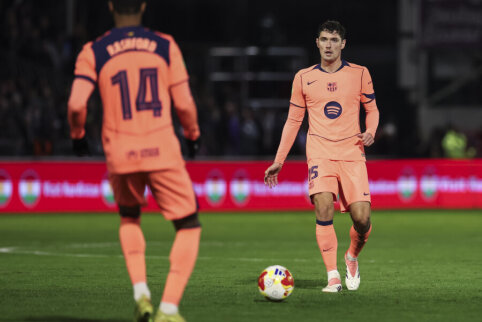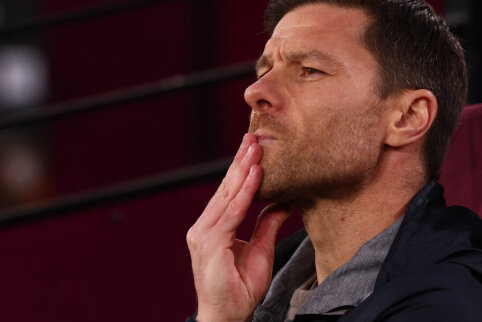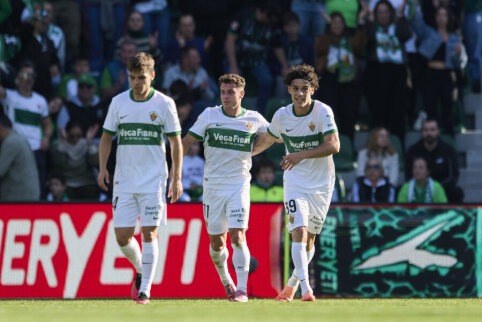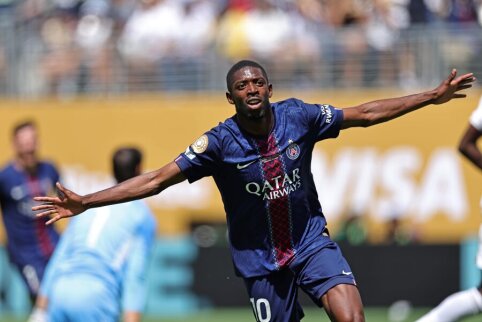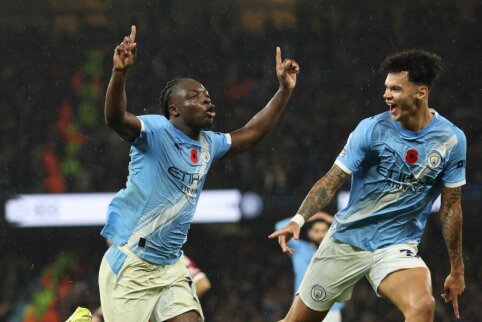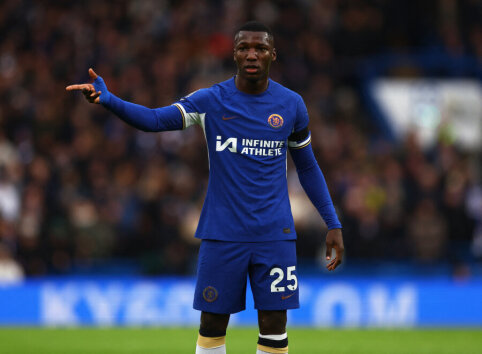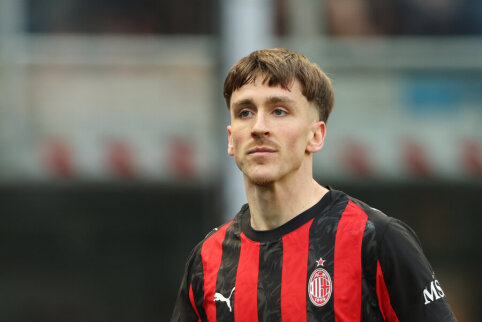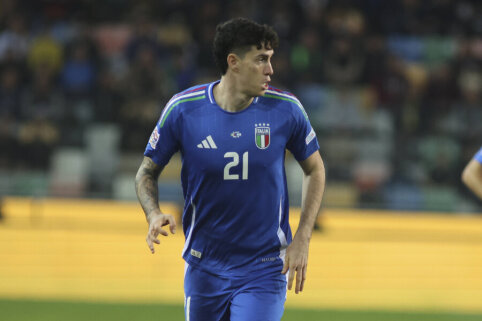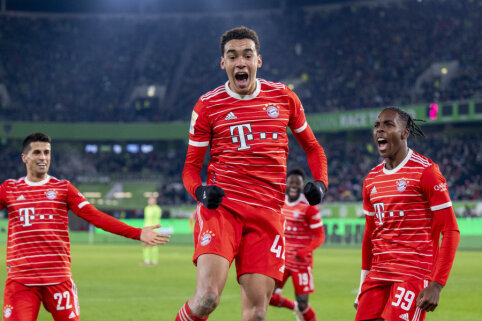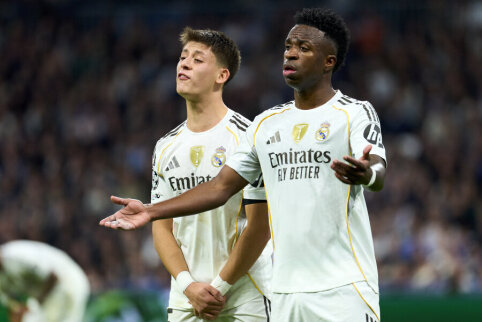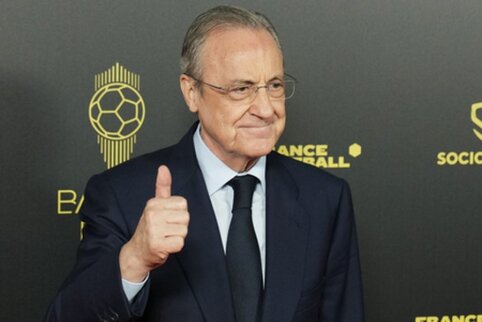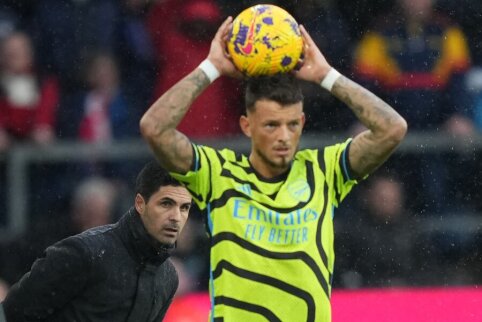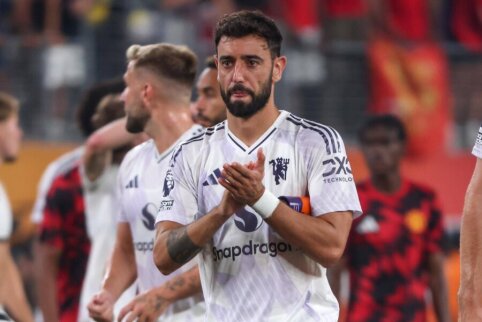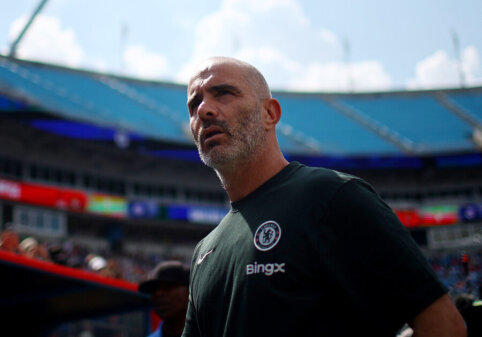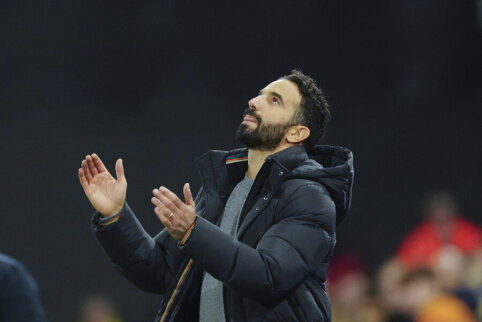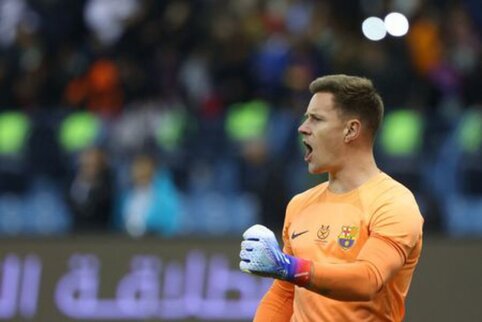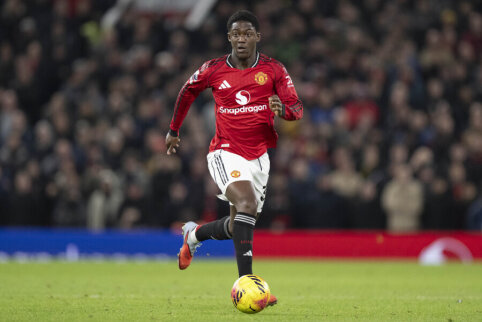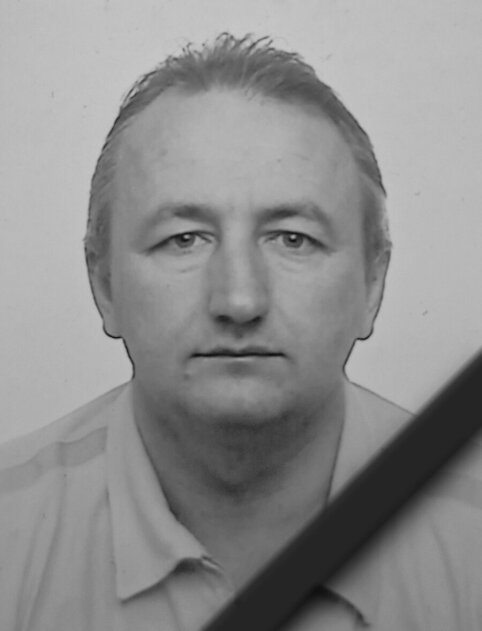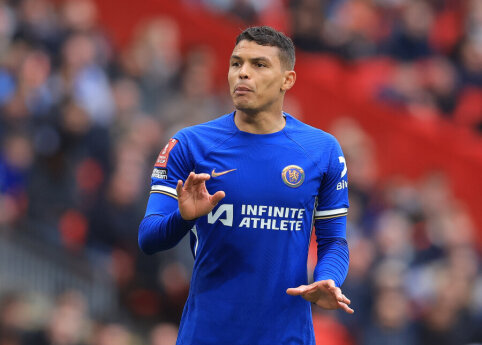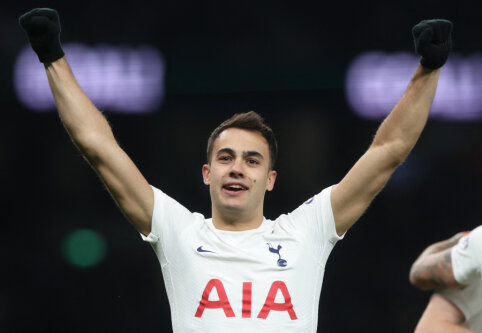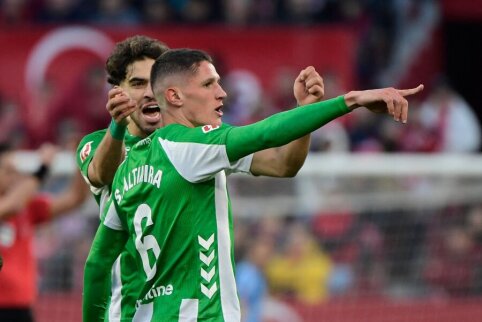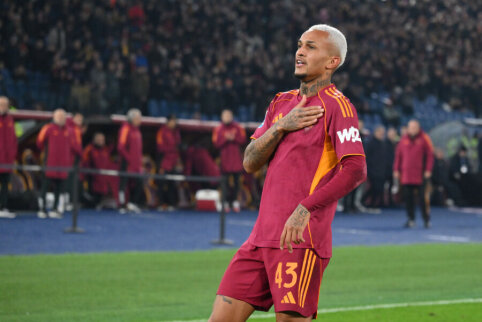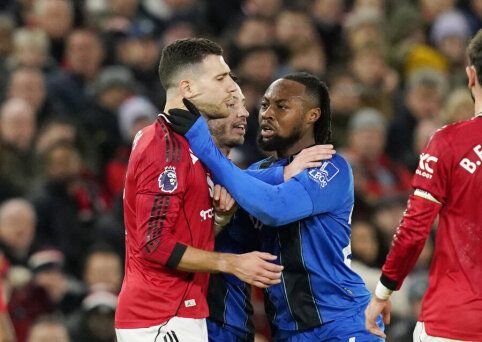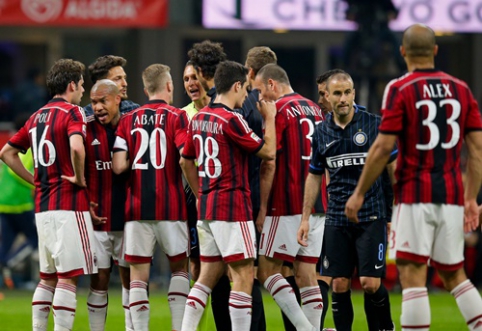
Season 2014-15 was the most successful for Italian football clubs in over a decade - "Serie A" teams occupied three out of eight places in the Champions and Europa League semifinals. Given the favorable circumstances, Italy could become the highest-earning country in terms of UEFA coefficient points this season. Last week, we reviewed the success of Juventus, and now we will look at the achievements of other major "Serie A" teams.
Napoli and Fiorentina - Europa League semifinalists don't promise much
Italian football does not end with Juventus. In order to call the current situation a revival, stable results must also be shown by other teams.
We probably wouldn't talk about this season as a revival of the entire "Serie A" if Italian clubs hadn't shined in the Europa League as well.
Italian clubs made up half of the semi-final participants, with five of them in the quarter-finals. Italian clubs were often blamed for not taking the Europa League seriously enough, and that's why they lost the fourth place in the Champions League. The problem probably lies deeper, but the truth is also not absent in this story.
Napoli's season is very ambiguous. On the one hand, reaching the Europa League semifinals is a truly impressive achievement, especially when they almost effortlessly defeated one of the Bundesliga leaders, the "Wolfsburg" club in the quarterfinals. However, the defeat in the semifinals to a fairly modest "Dnipro" team undoubtedly made Napoli fans scratch their heads, and coach Rafael Benitez did not rise to the occasion after this series of setbacks.
Napoli is not a stable enough team both on and off the field. One weekend they can crush one of their main competitors, and the next they could lose to "Empoli" or play a draw with the bankrupt "Parma."
Off the field, this club is distinguished by one of the most controversial and eccentric presidents of the "Serie A" clubs, Aurelio De Laurentiis, who surprises even the most seasoned football fans with his outbursts. Probably the most famous outburst happened a few years ago, when during a live broadcast, dissatisfied with the schedule of the new "Serie A" season for his club, he used uncensored language to announce his departure from football and embarrass himself as an Italian. This year, after a lost match, A. Di Laurentiis threatened to take away summer holidays from his team.
Another Europa League semifinalist, Fiorentina, does not have a scandalous owner, but it is unlikely to become a torchbearer of Italian football revival. For the past few years, the "violet" has quietly held high positions in the "Serie A" championship, but at the same time, it could not overcome the barrier and fight for a place in the Champions League.
This year's European League journey was memorable, and unlike Napoli, Fiorentina cannot really blame themselves for not making it to the final - they lost to the European League champions, "Sevilla."
However, it is unlikely that this journey will have any lasting value. Fiorentina has contracts with an inappropriately large number of players, which severely limits its possibilities in the player market. This club is largely dependent on its attacking stars - Mario Gomez and Giuseppe Rossi - and relying on their health is not the best idea. Since moving to Florence, M. Gomez has been constantly plagued by various health problems, and G. Rossi's injuries literally destroy his career.
Rome - the second football capital?
It is unlikely that Napoli and Fiorentina will show strong results in Europe year after year, so the look turns elsewhere.
After the impressive fall of the Milan clubs, the second football city in Italy can now be called Rome. The city's clubs are currently in second and third places in the championship. It is realistic that they will join Juventus in the Champions League.
However, not everything is rosy here either. The Roma season worsened with each passing month until it became clear that the club has serious problems. The aggressive statements of club president James Pallotta about the good financial condition of the club now seem highly doubtful - Roma was among the clubs punished for not complying with the "Financial Fair Play" rules.
It is interesting that Roma will spend almost 20 million euros on players they already have in the upcoming offseason. Almost 5 million has already been spent on Leandro Paredes, and around 15 million will cost the buyback of one of the team's leaders, Radja Nainggolan, from the "Cagliari" club.
It is likely that the club will have to sell one of its leaders, and significant sums could be generated by midfielder Miralem Pjanic, defender Vasilis Torosidis, and the aforementioned R. Nainggolan. There is no possibility of selling Kevin Strootman for big money - the serious condition of his operated knee will likely deter buyers.
Meanwhile, Lazio can be proud of its best season in the last decade. After a financial crash in 2004, the club's results fluctuated significantly, and the game, especially in recent years, often did not appeal to the eye. Everything changed when Stefano Pioli took over as coach, who managed to instill the concepts of active pressing and attacking football in his players.
Lazio is probably the second strongest team in Italy this year, but the problem is that S. Pioli's soldiers needed a lot of time to gear up, which caused the club to lose important points at the start of the season, and injuries often stopped their momentum. In February-April, Lazio won eight games in a row, occasionally outscoring opponents by up to four goals per game, until injuries disrupted the squad and this series eventually ended.
On Wednesday, the "eagles" fought as equals in the 120 minutes of the "Coppa Italia" final against Juventus, but were ultimately forced to acknowledge the rivals' superiority. Luck was lacking.
Unlike Roma, Lazio does not have financial problems - club president Claudio Lotito adheres to a strict financial policy that guarantees the club's security and stability. The problem is that if the team reaches the Champions League, it will certainly need to significantly strengthen its squad and invest a considerable amount of money, primarily to maintain its current positions, perform adequately in Europe, and perhaps at least take small steps towards Juventus. Is C. Lotito willing to spend more money than before - the question remains entirely open for now.
The crisis continues in Milan
About the current situation of Inter and Milan, one could probably write separate books, and those who want to predict the future of these clubs can simply wish them good luck - they will definitely need it.
Inter has an even larger number of players than Fiorentina. This is probably a consequence of the revolving door of coaches - since Jose Mourinho led Inter to win the Champions League in 2010, the club has had seven different coaches.
All of them, of course, have their own requirements when forming the team for the club owners, and when a new coach takes over, certain players no longer fit into the new coach's schemes, and they start demanding that the club acquire other players.
The consequences are such that the current coach, Roberto Mancini, has an absolutely inadequate number of central midfielders, and the lack of attacking wingers is glaring. R. Mancini, trying to fit as many central midfielders as possible, uses a 4-3-1-2 tactical scheme, but it is difficult to fit Inter's newcomer, Xherdan Shaqiri, into it, with whom the club had high hopes.
Inter lacks balance, but the big question is whether businessman Erick Thohir, who bought the club a year and a half ago, can restore it. The "Nerazzurri" need to stop changing coaches frequently and strengthen the truly problematic positions of the team. According to rumors, E. Thohir is not willing to do this and he is more focused on signing Yaya Toure, who had a mediocre season at Manchester City. It is doubtful that Inter needs a player like him right now.
On the other hand, the chaos at Milan is even greater. There is no doubt that coach Filippo Inzaghi's head will roll after the season, and the club's sale to Thai businessman Bee Taechaubol, better known as Mr. Bee, is taking on an American roller coaster principle - one day there are reports that Milan is almost sold, and the next day the negotiations collapse.
Milan is going through one of the darkest periods in its history, and this club will probably need a lot of time to return to title contenders.
It is still too early to talk about revival
Italian football fans undoubtedly rejoice in this season, but for now, it is too early to call this season a revival.
Despite the final of the Champions League, we can already say that Juventus has done an incredible job in raising the prestige of "Serie A." However, calcio does not end with Juventus. For "Serie A" to truly return to the top three leagues, the efforts of the clubs discussed in this article are simply necessary.
The responsibility for the revival of calcio is collective.
Paulius Viluckas - I have been closely following football for more than 7 years and during this time, I have gathered a lot of knowledge and facts that I want to share. I am particularly interested in the leagues of England, Spain, Germany, and especially Italy. I will be happy if at least one football fan who does not follow this sport becomes interested in this field.
Paulius Viluckas, 15min.lt
